Different Type of Air Freight
Air freight emerges as a pivotal force in the vast global logistics landscape, seamlessly connecting distant corners of the world. It’s the heartbeat of international trade, ensuring that goods move swiftly and efficiently across borders. Understanding the nuances of different type of air freight is crucial.
Why does it matter, you ask? Imagine a manufacturer in Asia must deliver urgently needed components to a European production facility. Enter air freight—the superhero of swift transportation. But, as in any hero’s tale, there’s more than one way to save the day. Hence, comprehending the various types of air freight becomes the compass guiding businesses through the sky-high options available.
So, buckle up as we navigate through the clouds of express and standard shipments, explore the intricacies of specialized cargo, uncover the advantages of charter services, and even peek into the role of air freight in the postal domain.
Contents
What is Air cargo and its benefits?
Air freight, a linchpin in global logistics, swiftly moves goods worldwide, enabling timely and efficient cross-border commerce.
Air freight involves transporting goods via aircraft, offering unparalleled speed and connectivity in the transportation sector. This mode of transportation has become indispensable in our interconnected world, acting as the accelerator for the global supply chain.
The advantages of choosing air cargo are as clear as the skies it traverses. First and foremost, it’s all about speed. Air freight is the fastest shipping mode, ensuring that goods reach their destination in record time. This rapid transit is crucial for industries where time sensitivity is paramount, such as manufacturing and healthcare.
Beyond speed, reliability is a hallmark of air cargo. Airlines operate on tight schedules, minimizing delays and offering a level of predictability crucial for businesses.
Moreover, air freight thrives on global connectivity. It transcends geographical barriers, linking continents and countries seamlessly. This interconnectedness enhances the accessibility of markets, fostering international trade and economic growth.
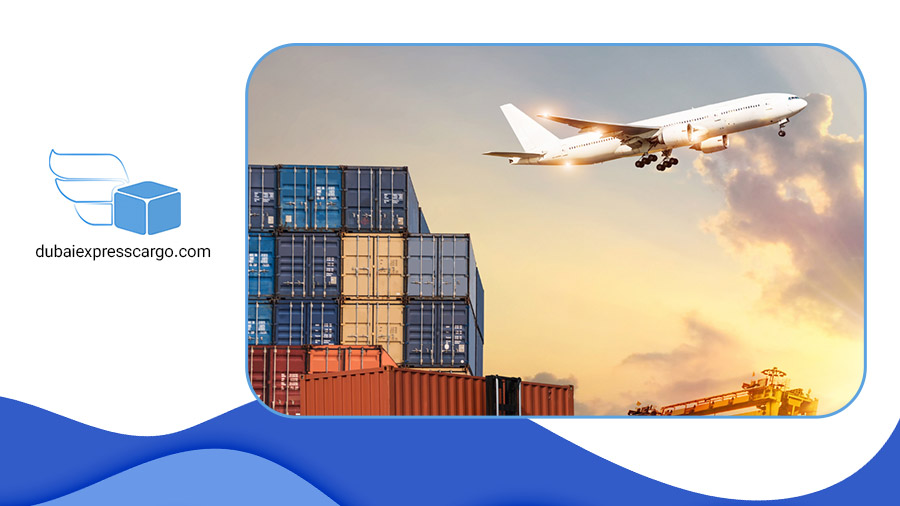
Picture the key components of air freight as the gears in a well-oiled machine. At its core are carriers, the airlines responsible for transporting the goods. These carriers operate within a comprehensive network of airports, serving as crucial nodes in the air cargo system.
Freight forwarders act as orchestrators, coordinating the intricate ballet of shipments. They manage logistics, documentation, and compliance, ensuring a smooth journey from the point of origin to the final destination.
In this dance of logistics, airports play a pivotal role. They serve as bustling hubs where goods transition from ground to air and vice versa. Modern airports are equipped with state-of-the-art facilities to handle various types of cargo, ensuring efficiency in loading and unloading.
Customs authorities step onto the stage as gatekeepers, ensuring that shipments comply with regulations. This critical checkpoint demands accuracy in documentation and adherence to international trade laws.
Technology is the silent conductor, harmonizing the movements of this complex symphony. Tracking systems, automation, and digital documentation streamline processes, enhancing transparency and minimizing the risk of errors.
Packaging is the protective cloak that ensures goods traverse the skies unscathed. Given the unique challenges of air transport, packaging must be robust yet lightweight, safeguarding products from turbulence and handling.
Each component plays a crucial role in this interconnected web of carriers, airports, freight forwarders, customs, and technology. Together, they form the backbone of air freight, ensuring goods soar through the skies with precision and reliability.
Different Types of Air Freight
Express & Over Night air freight
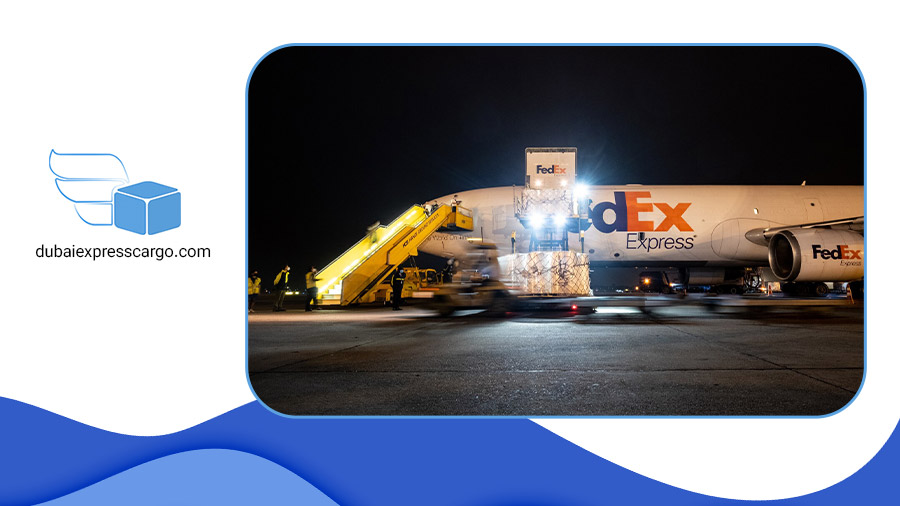
In the world of air freight, express and overnight shipments emerge as the swift sprinters of logistics. Express air freight services prioritize speed, ensuring goods reach their destination swiftly and reliably. The benefits are undeniable—immediate transit and on-time delivery, making it ideal for industries where time is of the essence.
Industries like e-commerce and healthcare heavily rely on express air freight. For e-commerce, it ensures rapid delivery of online orders, meeting customer expectations for quick turnaround. In healthcare, where timely delivery of medical supplies and equipment is critical, express air freight is a lifeline.
Choosing overnight shipments is a strategic move for businesses requiring urgent deliveries. This option is not just about speed; it’s a commitment to meeting tight deadlines. Manufacturers with just-in-time production models, emergency spare parts requirements, and perishable goods suppliers find overnight shipments invaluable.
Express air freight services are a lifeline for businesses where time sensitivity is paramount. From the rapid fulfillment of online orders to the swift delivery of critical medical supplies, industries ranging from e-commerce to healthcare rely on the immediacy and reliability of express and overnight shipments to keep their operations running seamlessly.
Standard Air Freight
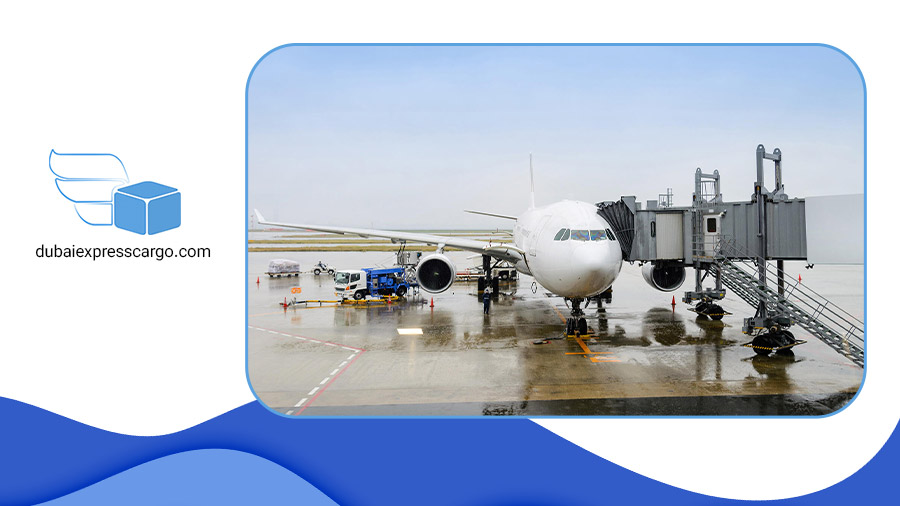
Standard services are a reliable workhorse, offering a balanced approach.
Standard air freight involves transporting goods without the urgency associated with express services. It’s the dependable choice for businesses seeking a cost-effective yet efficient means of shipping.
Comparing standard and express shipments, standard air freight sacrifices speed for affordability. While Express is the sprinter, the standard is the marathon runner, ensuring timely delivery without urgency.
Considerations for choosing standard air freight involve assessing the cost and delivery time balance. For businesses with less time sensitivity, standard services offer an economical option without compromising efficiency.
Specialized Cargo
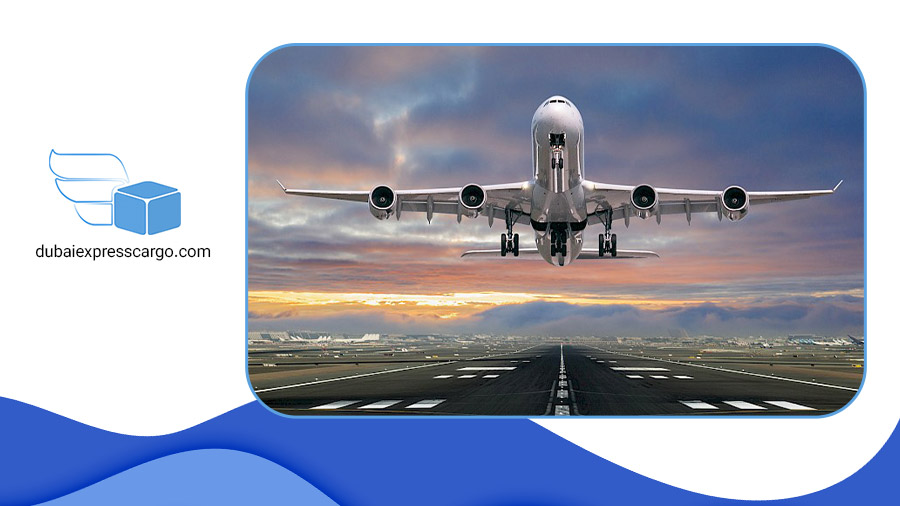
Specialized cargo services cater to the unique needs of diverse and distinctive goods.
Handling perishable, hazardous, or oversized items demands specialized care. Specialized handling and packaging ensure the safe and secure transportation of goods with specific requirements.
Industries like pharmaceuticals, chemicals, and automobiles frequently leverage specialized air cargo services. For pharmaceuticals, maintaining the integrity of temperature-sensitive medications is essential. Chemicals and automotive components, often hazardous or oversized, require precision and adherence to safety standards.
Charter Services
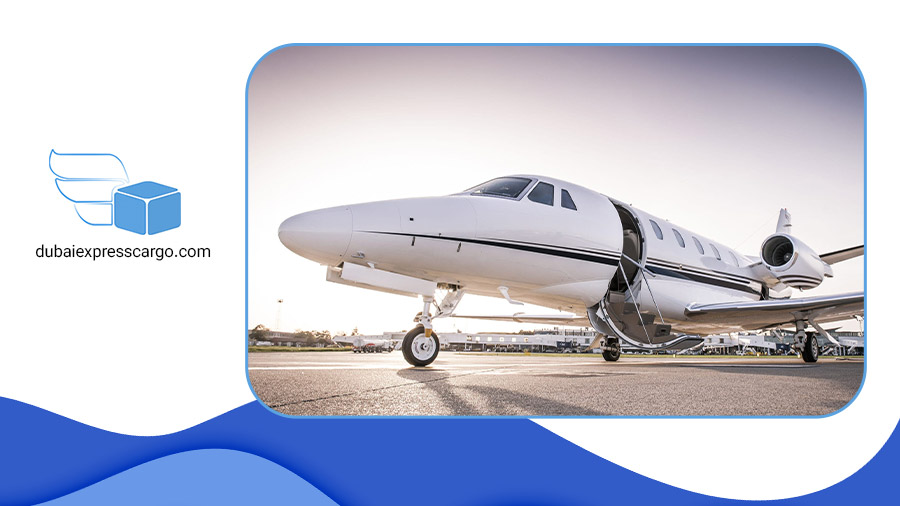
Charter services stand out as a bespoke solution, offering exclusivity and flexibility in transportation.
Air charter services involve the exclusive rental of an entire aircraft. The purpose is to provide tailor-made logistics solutions that meet specific and often unique shipping requirements.
Chartering an entire aircraft comes with distinct advantages. It ensures direct routes, customized schedules, and exclusive use of the cargo space, resulting in optimal efficiency.
Instances when charter services shine include critical timelines, oversized shipments, or destinations with limited commercial flight options. For businesses with specific needs, air charter services provide a dedicated solution.
- Related Article: WHAT’S THE CHEAPEST WAY OF SHIPPING LARGE PACKAGES ?
Mail and Postal Shipments
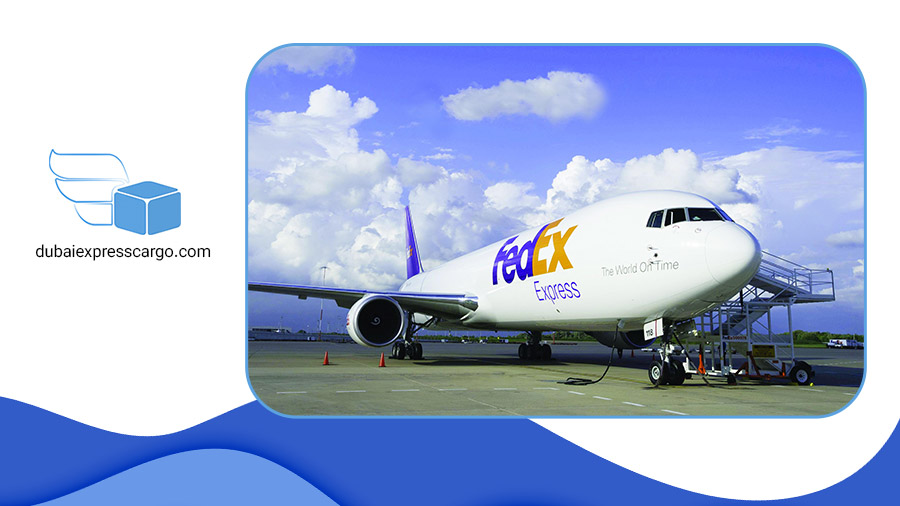
In the Air freight, mail, and postal shipments form a silent but crucial movement, ensuring global connectivity.
Mail and postal services extensively utilize air freight for swift and efficient international delivery. Air cargo expedites the transport of letters and parcels, connecting distant corners of the globe in record time.
Despite its efficiency, postal air shipments face challenges. Customs clearance, varying regulations, and seamless coordination are critical considerations in ensuring the smooth movement of postal shipments by air.
Technology and Innovation in Types of Air Freight
Technology acts as a catalyst in air freight, reshaping logistics and propelling the industry into the future.
Technology has revolutionized air freight logistics, enhancing efficiency, accuracy, and speed in every supply chain step. From automated booking systems to real-time tracking, advancements have streamlined processes.
Automation is a cornerstone in modern air cargo operations. Automated systems facilitate quicker handling of shipments, reducing human errors and ensuring precise cargo management. This not only expedites processes but also enhances the overall reliability of air freight services.
Tracking systems are pivotal in providing transparency and accountability in air cargo. Real-time tracking allows stakeholders to monitor the movement of shipments, ensuring timely and secure delivery. This transparency is crucial for businesses and customers, instilling confidence in logistics.
Exciting trends and innovations mark the future of air freight. One notable trend is the integration of artificial intelligence (AI). AI algorithms can analyze vast amounts of data, optimize routes, predict demand, and improve overall decision-making processes in air cargo logistics.
Another trend gaining momentum is using unmanned aerial vehicles (UAVs) or drones for cargo transport. Drones offer a cost-effective and environmentally friendly alternative for last-mile delivery, especially in remote or challenging terrains.
Blockchain technology is making waves in the air freight industry, enhancing transaction security and transparency. It ensures an immutable and decentralized ledger, reducing the risk of fraud and providing a secure platform for various stakeholders in the supply chain.
Environmental sustainability is a growing concern, and the air freight industry is responding with innovative solutions. Electric-powered aircraft and exploring alternative fuels pave the way for a more eco-friendly air cargo sector.
Integrating the Internet of Things (IoT) is another significant advancement. IoT devices on cargo provide real-time data on temperature, humidity, and other conditions, ensuring the integrity of goods, especially in transporting sensitive cargo like pharmaceuticals.
Augmented reality (AR) is finding applications in training and operations. AR technologies can enhance training programs for cargo handling and provide real-time information to personnel, improving efficiency and safety.

Choosing the Right Type of Air Freight
Choosing the right type is a strategic decision that hinges on various crucial factors.
- Consider the urgency of your shipment. For time-sensitive deliveries, express or overnight shipments are ideal choices.
- Evaluate the nature of your cargo. Specialized cargo services are tailored for unique goods like perishable or hazardous items.
- Examine your budget constraints. Standard air freight offers a cost-effective solution without compromising efficiency for businesses with flexible timelines.
- Think about the flexibility you need. Charter services are perfect for businesses requiring tailored solutions with exclusive use of an entire aircraft.
- Consider the destination and the availability of commercial flights. In regions with limited options, charter services can ensure connectivity.
- Assess the volume of your cargo. For smaller shipments, express services might be more cost-effective, while larger volumes may benefit from standard or charter options.
- Ensure compliance with regulations. Specialized cargo often has specific regulatory requirements that need meticulous attention for smooth transportation.
Now, let’s explore some tips for optimizing cost and efficiency in air cargo logistics.
1. Consolidate Shipments: Combine smaller shipments into one to benefit from economies of scale, reducing overall costs.
2. Optimize Packaging: Efficient packaging ensures maximum use of cargo space, minimizing costs and enhancing safety during transit.
3. Utilize Technology: Implement tracking and management systems to streamline operations, providing real-time visibility into the movement of goods.
4. Negotiate Rates: Regularly review and negotiate rates with carriers to secure cost-effective agreements and optimize your budget.
5. Warehouse Proximity: Strategically choose warehouses close to airports to minimize ground transportation costs and expedite loading processes.
6. Forecast Demand: Use data analytics to forecast demand accurately, preventing overstocking or understocking of goods.
7. Consider Intermodal Transportation: Explore the combination of air and other modes of transportation for a balanced and cost-effective logistics strategy.
8. Collaborate with Reliable Partners: Build strong relationships with reliable carriers and logistics partners to ensure consistent and efficient air cargo services.
9. Adopt Sustainable Practices: Embrace environmentally friendly practices, such as using electric-powered aircraft or exploring alternative fuels, to align with sustainability goals.
10. Regularly Review Strategies: The logistics landscape evolves, so regularly review and adapt your air cargo strategies to stay competitive and efficient.
Choosing the right type of air freight involves carefully analyzing specific business needs and the characteristics of the cargo. Whether it’s the speed of express services, the reliability of standard air freight, the specificity of specialized cargo, the flexibility of charter services, or the efficiency of postal shipments, each type offers unique advantages.
Conclusion
In the ever-evolving skies of global logistics, choosing the right air freight type is paramount. As we conclude, remember to stay informed about industry trends.
For seamless air cargo solutions, consider Dubai Express Cargo—an expert in air freight, ensuring your goods soar with precision and efficiency in the dynamic world of global commerce.

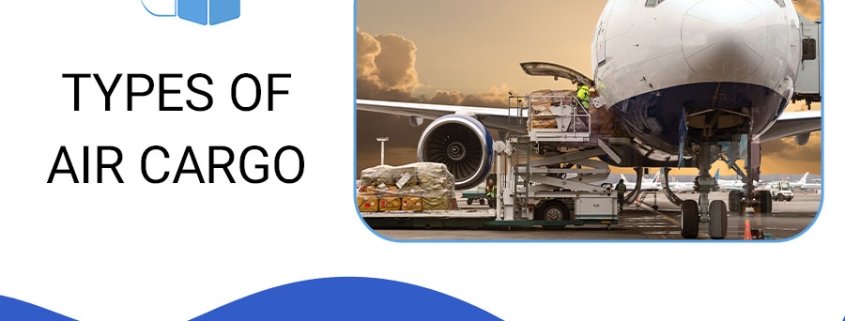


Leave a Reply
Want to join the discussion?Feel free to contribute!